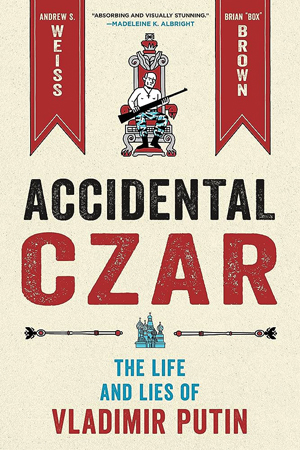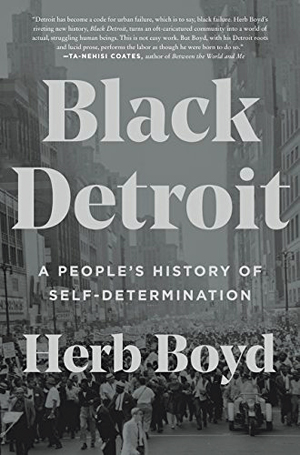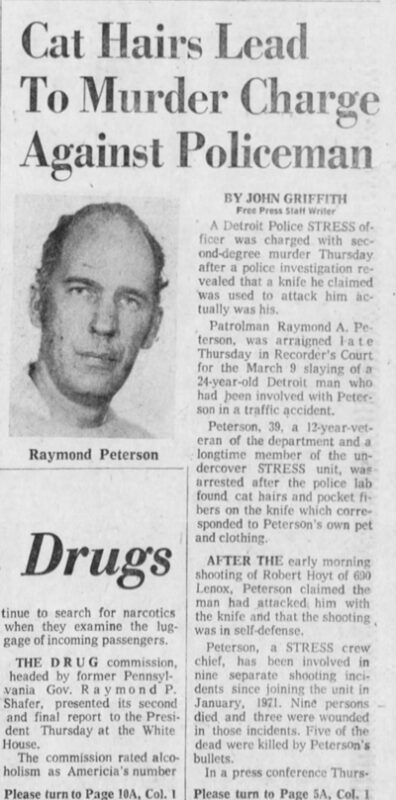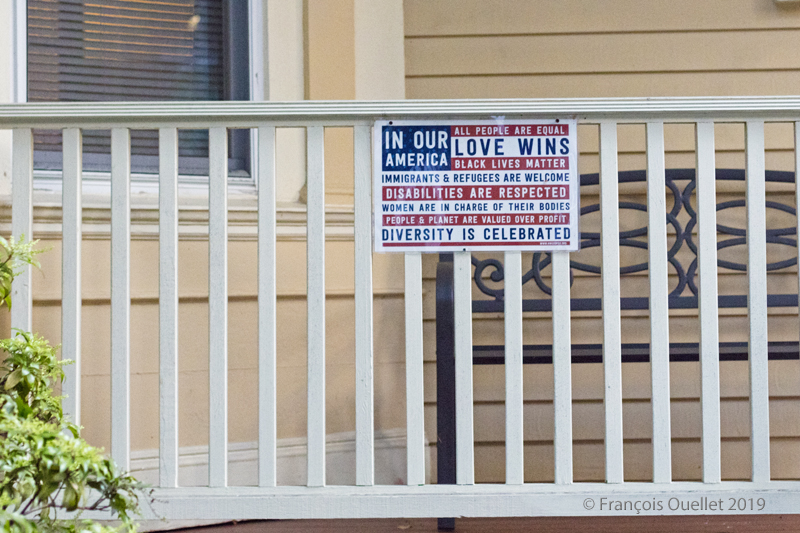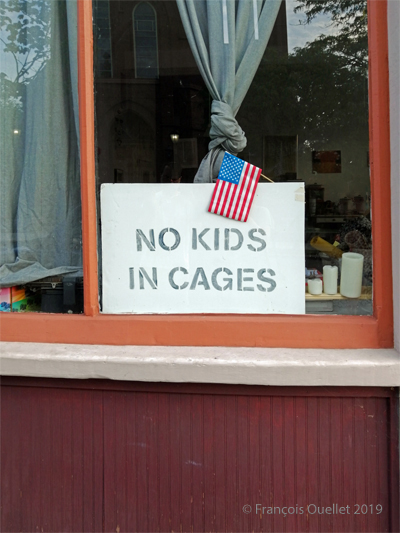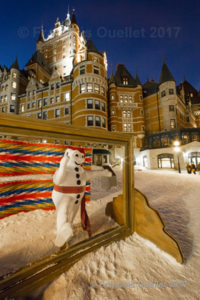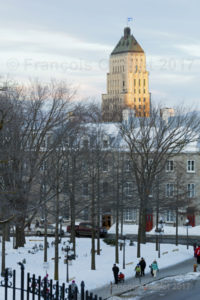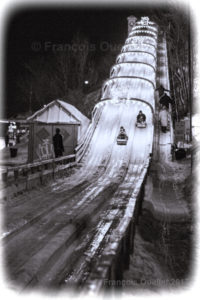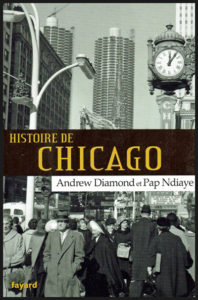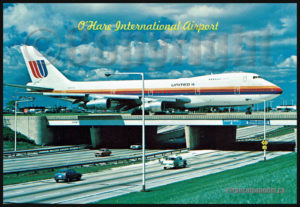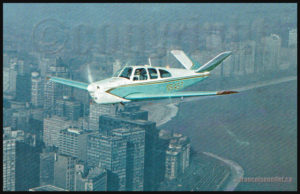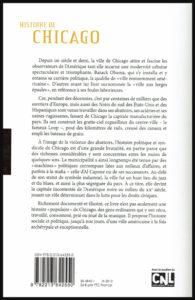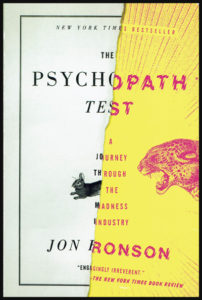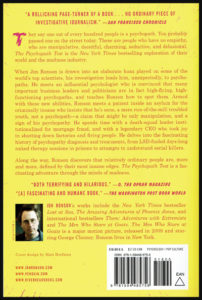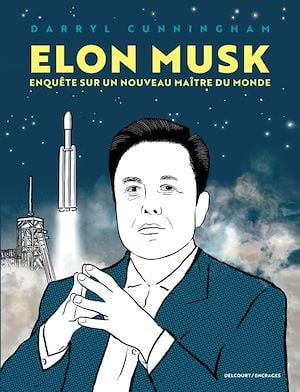
The Musk family
I appreciate real-life stories, and especially investigations that study human behaviour. Reading this graphic novel in French about Elon Musk, one grasps the character’s high level of initiative. He likes risking a lot when creating a new company. This characteristic is also present in the family genealogy, starting with the grandfather. However, they clearly act without concern for social norms.
Elon’s main desire is to use his talent and creativity to influence the course of the world, particularly when it comes to the Internet, renewable energies and space. As well as mentioning Musk’s successes, the graphic novel also highlights the grey areas that are too often overlooked.
Considering that mankind will one day colonize space, Elon Musk looked to buy a rocket, but they were all too expensive. So he created Spacex and a team of Spacex scientists invented a rocket named Falcon 1, which the company succeeded in launching into orbit after six years’ work. In 2011, Spacex built the world’s first reusable rocket. A year later, the Falcon 9 equipped with a Dragon capsule refuelled the International Space Station (ISS). In light of this success, the government reinjected another $440 million into Spacex for development. I write “another $440 million” because this was not the government’s initial investment in the firm.
Companies narrowly saved
As we read the book, we realize how many times Musk’s businesses have come close to disaster, only to be narrowly saved by perseverance, lots of luck, top-level government relations and whimsical promises.
Just think of Tesla and Spacex, two endangered companies that were spared from bankruptcy by a sudden injection of public money in the form of a $1.6 billion contract from NASA. This was preceded and followed by substantial loans from the US government: “Without the support of American taxpayers, Musk’s fortune would not exist.”
The book also mentions a possible fraud, as the SEC (Securities and Exchange Commission) filed a complaint for misleading tweets about Tesla. These tweets were said to have pushed up the share price by 6%. A settlement was reached a week later between Musk and the SEC. On this subject, Musk neither admits nor denies the allegations. “Musk and Tesla had to pay a fine of $20 million each and Musk had to step down as Chairman of Tesla’s Board of Directors for three years while remaining CEO.”
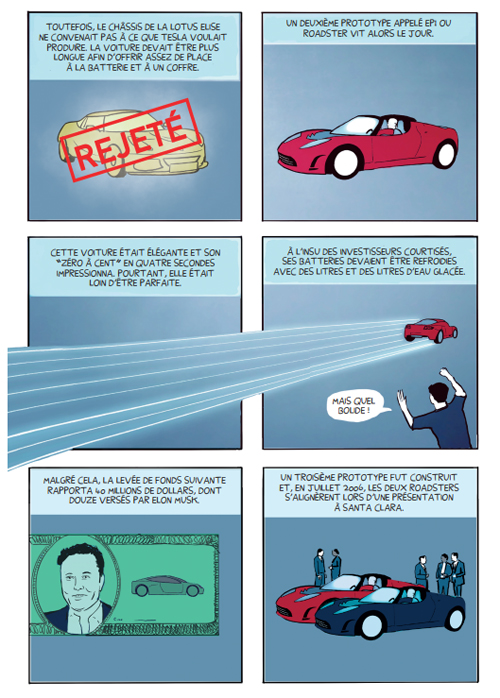
Whimsical Promises or Unfounded Announcements
Musk has talent when it comes to touting his products. But the author specifies this: “There’s no denying that Musk is determined, intractable and possesses a real gift for self-promotion. That said, he’s not an inventor, let alone a scientist.”
The book lists a number of whimsical promises, while pointing out that the media help Musk by passing on information that is not systematically verifiable or proven. The result is that the average reader is left with the impression that Elon Musk developed Spacex and Tesla all by himself: “The legend of the self-made billionaire will always be more seductive than the banal reality”.
As an example of whimsical promises, Musk announces that all battery recharging will be free for the Tesla Model S. This is nothing but hot air. He also declares that a Tesla will drive autonomously between Los Angeles and New York in 2017. At the time of writing, no such promise has materialized.
He also made other daring statements in 2016 when he founded Neuralink. This company has been criticized because the research it funds is poorly controlled. According to the book, it generates unnecessary animal suffering. In 2024, Elon Musk reveals that “his company has successfully implanted a device capable of ‘reading thoughts’ in an individual’s brain […]”. He gives no details of the location of the operation or the results.
Musk also makes unfounded statements about vaccination and the virulence of Covid-19. While he declares that this virus has a very low mortality rate and that he will not be vaccinated, the WHO announces in 2023 that the planet is at over three million deaths. He changes his mind and gets vaccinated. But what effect have his words had on recalcitrant Americans?
Elon Musk, Twitter and X
“Since its takeover by Musk, Twitter (or rather ‘X’) has been a tool for promoting the interests, prejudices and conspiracy theories of the right-wing parties of the American political class. This bias has brought a tidal wave of racism, anti-Semitism, climate skepticism, LGBTQ+ hate and medical fake news to the site.”
Elon Musk and Long-Termism
Long-termism and the colonization of various planets are themes dear to Elon Musk. Here’s what the book has to say about it: “Long-termism is an extremely dangerous ideology. It’s a secular religion built around the worship of ‘future value’ whose ethos absolves you from worrying about threats like climate change and global poverty, while making you a good person because you care about the future of humanity as a race that has conquered other planets.”
“No one should have the discretionary power that Elon Musk enjoys, because he hasn’t earned it and he doesn’t owe it to himself alone. He doesn’t understand how much his success owes to privilege and luck. As a result, he thinks he’s much smarter than he really is.”
Elon Musk and US President Donald Trump
If the attitude and decisions that characterize Elon Musk in entrepreneurship are transposed to the state, they could undermine the American president’s aspirations regarding his vision of American politics and the actions to be taken in the face of future challenges.
For example, Musk is known for avoiding confrontation with the Chinese president, as China is Tesla’s second-largest market. But Trump didn’t hesitate in his first term to impose substantial tariffs on China. Musk has also “directly interfered in Ukraine’s fight against Russian invasion”. The strategic interests of the two individuals could diverge significantly at times.
But it must also be considered that the actions of the two men could come into phase, which would mean far more rapid and far-reaching upheavals than anticipated.
One thing is certain: the Trump/Musk duo’s solutions to America’s problems will surprise observers of the political and economic scene. The Musk family has never been concerned about the dust they kick up when it comes to pushing their ideas forward. And Trump’s reductive analysis of the cause of America’s problems will do nothing to reassure the various national and international players. This can be seen in his current comments on Greenland, the Panama Canal and Canada.
The countries targeted by this duo’s initiatives will have to expect anything, and use their creativity, fighting spirit and composure to impose respect and restraint.
Click on the link for more graphic novels and comics in my blog.
Title: Elon Musk—Enquête sur un nouveau maître du monde.
Author: Darryl Cunningham
Publisher: Delcourt/Encrages, © 2024
ISBN: 978-2-413-08612-3
